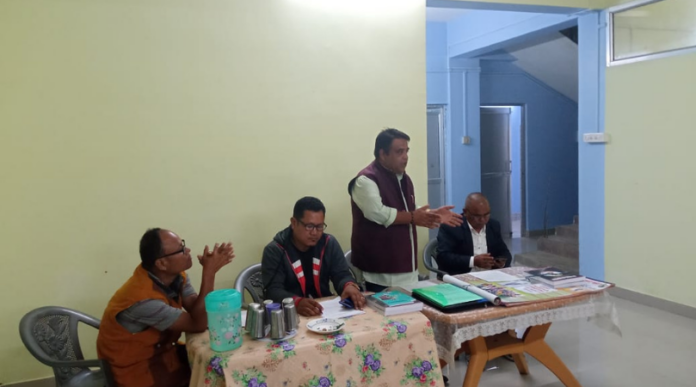GUWAHATI:
The Garo Development Council (GDC) of Goalpara, on February 22, submitted a memorandum to the Deputy Commissioner (DC) alleging “forceful land grabbing” in 18 Garo villages of the district by illegal Bangladeshi immigrants.
According to the memorandum, these villages are Bhalukdubi, Bagulamari Gobindapur, Helapaakru, Raikosini, Damra, Bolbola and Dhaigaon, among others.
“About 95 per cent of our lands in these villages are being grabbed through vicious means by illegal immigrants,” said an official of the GDC.
In the memorandum, GDC chairperson Alex K Sangma and vice-chairperson, Thengsil Sangma, said, “Land mafia has been grabbing lands both in rural and Garo dominated areas of the district. It has been a dangerous trend over the past several decades.”
Stating that such activities are rampant despite the enactment of the Assam Land Grabbing (Prohibition) Act (ALGPA) in 2010 with rules and penal provisions against land mafias, the memorandum said that there is a lack of adequate law enforcement machinery to empower the GDC to stop this growing menace.
The GDC also urged the Assam government to introduce a “no objection certificate” (NOC) provision in transfer of land from a Garo to a non-Garo, which could only be provided by the GDC after spot verification.
The memorandum further stated, “The transfer of land from a Garo tribe to a non-tribal is a hoax to grab land in the 18 villages – be it through sale, mortgage, lease, gift or exchange. A NOC from the GDC is, therefore, necessary, because the very survival of the Garo people is entirely dependent on their land and agriculture.”
Referring to the matrilineal pattern where the system of inheritance runs through the women, the GDC alluded to marriages between a Garo and a “scrupulous non-Garo”. Traditionally, land ownership in the Garo society is primarily governed by the customary laws and practices of the community.
One of the major issues in present times is “land alienation”, the GDC said. Citing an example, the GDC stated how a Garo individual often approaches a non-Garo money lender in need of money, and unable to repay the exorbitant amount of interest, the lender takes over his land as a form of payment. “This, in turn, has a spiral effect, and Garos get pushed towards the hills, leaving their ancestral lands because they feel threatened,” the memorandum said.
“Land grabbing has been declared unlawful, and any activity connected with or arising out of land grabbing is a punishable offence. The state government should deal with the unauthorised occupation of land strictly,” the memorandum said, adding how cultural cohesion, a small population and sufficient landholding have so far protected the Garo community.


